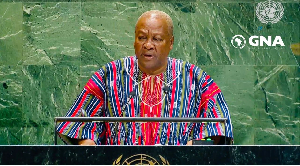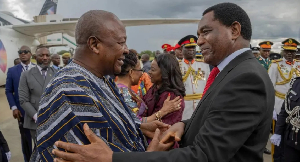About 4,500 former illegal small-scale miners have been registered and received training under the Community Mining Initiative across the country to ensure responsible mining.
They have been given mining concessions to operate on at designated areas to avert indiscriminate destruction of the forest and pollution of water bodies.
Mr Kojo Oppong Nkrumah, the Information Minister, announced this at a media briefing in Bolgatanga on Sunday, ahead of a scheduled town hall meeting at the GNAT Hall on Monday, September 30.
The town hall meeting is aimed at updating the people of the Upper East Region on government's flagship initiatives, receive feedback on government policies and solicit inputs to make the policies better.
The Minister said a number of support programmes had been initiated aimed at deepening support for former illegal small-scale gold miners, through the enhanced Alternative Livelihood Programme and Community Mining Initiatives.
He said the programme targeted at former illegal small-scale miners who were affected by the ban on small scale mining in 2017, and to ensure that the participants benefit from their God-given resources, but do so without risking their lives and damaging the environment.
“For those who want to remain in mining but do it legally, government has introduced the Community Mining concept through which former illegal small scale miners are properly registered, trained, given concessions to jointly work on and properly tracked to ensure they mine responsibly,” he said.
According to the Minister, Government had also rolled out the Alternative Livelihood Programme, which seeks to train those who were no longer interested in mining to work in other economic sectors.
The training, he said, covered skills such as oil palm farming, tailoring and dress making, welding and metal fabrications, as well as plumbing and carpentry.
The expectation of government, he said, was that those interventions would ensure former miners remained economically-viable, as the battle against illegal small scale-mining continued.
General News of Monday, 30 September 2019
Source: GNA













